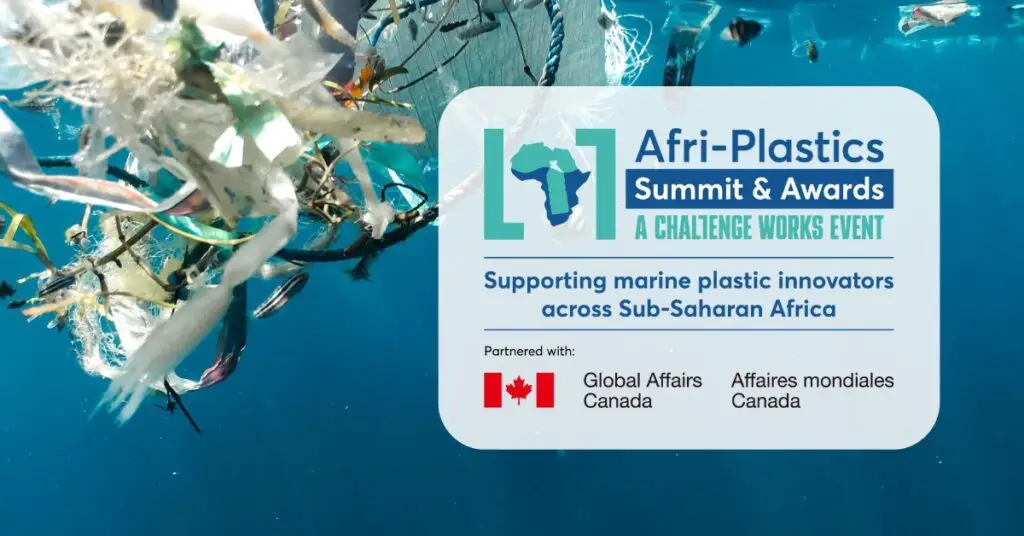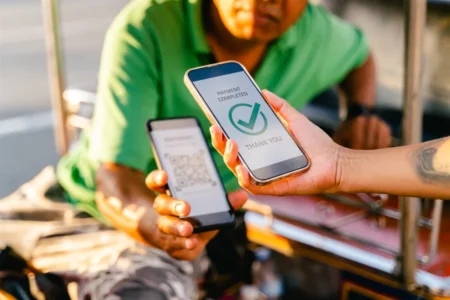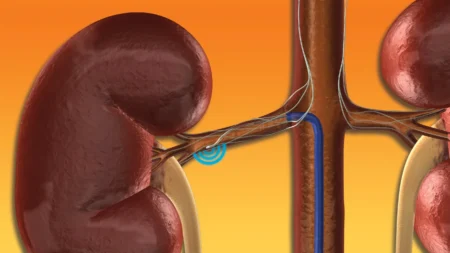- Nine Kenyan startups are competing for a share of more than $4.4 million in funding as part of a Sub-Saharan-African plastics innovation challenge.
- Kenyan and Nigerian startups dominated the cohort of finalists, with nine startups each, out of the total 40 finalists startups that made it to the final phase of the Prize.
- Launched in July 2021, the Afri-Plastics Challenge received 1,141 entries from innovators across sub-Saharan Africa.
Nine Kenyan startups are competing for a share of more than $4.4 million in funding as part of a Sub-Saharan-African plastics innovation challenge.
Run by innovation prize experts Challenge Works and funded by the Government of Canada, the
Afri-Plastics Challenge is tackling plastic waste and reducing pollution making its way into the marine
environment.
Kenyan and Nigerian startups dominated the cohort of finalists, with nine startups each, out of the total 40 finalists startups that made it to the final phase of the Prize. South Africa has 6 finalists, Ghana (4) Uganda and Rwanda (2), while Cameroon, Senegal, Burkina Faso, Ethiopia, Togo, Botswana, Democratic Republic of Congo and Cote d’Ivoire secured one slot each.
Speaking about the Plastics Pollution problem in Africa, Jonathan Slater, Director of International Development at Challenge Works said, “It is difficult to provide an exact figure for the current marine plastic waste in Africa as data on this is often incomplete or outdated. However, it is known that Africa is a major contributor to global marine plastic pollution, with an estimated 17 million tons of plastic waste generated annually in the continent, much of which ends up in the oceans.”
Launched in July 2021, the Afri-Plastics Challenge received 1,141 entries from innovators across sub-Saharan Africa. The winners will be announced at the Afri-Plastics Summit & Awards in Nairobi, Kenya on March 16, 2023.
The Summit will include in-depth conversations with a range of local and international experts and speakers on the marine plastic ecosystem in the region as well as showcase solutions on how Sub-Saharan Africa can sustainably reduce marine plastics.
“Poor waste management practices, inadequate infrastructure for waste collection and disposal, a lack of public awareness about the impact of plastic pollution, and the increasing use of single-use plastic products are key factors that have contributed to the plastic waste problem, ” added Slater.
While many Sub-Saharan African governments including Kenya, have recognized the need to tackle
plastic pollution and have started to implement policies and initiatives to address it through plastic bag
bans, taxes on single-use plastic products, and investment in waste management infrastructure, more
should be done. This includes investing more in research and development, educating the public about
the importance of recycling, and improving waste management systems.
“The successful innovations developed through the Afri-Plastics Challenge have paved the way to revolutionise Africa’s approach to reducing the reliance on plastic. They are also supporting the empowerment of women and girls by creating economic opportunities for women. 60 percent of entries that made it to the final 40 were women-led,” expounded Slater.
For a decade, Challenge Works has established itself as a global leader in designing and delivering high-impact challenge prizes that incentivise cutting-edge innovation for social good. The firm is a social enterprise founded by the UK’s innovation agency Nesta. In the last 10 years, the firm has run more than 80 prizes, distributed £84 million in funding and engaged with 12,000 innovators.
Challenge Works, is scaling solutions to the scourge of plastic pollution in sub-Saharan Africa thanks to funding from the Government of Canada. The challenge comprises three strands to take on the problem on multiple fronts. Strand 1 – Accelerating Growth – rewarding innovative solutions to managing plastic waste after it has been used and discarded (i.e. downstream solutions).
Total prize money of $2.4 million. Strand 2 – Creating Solutions – rewarding innovative solutions to reducing the volume of plastic in packaging and other products before it is used (i.e. upstream solutions). Total Prize money of $1. 4 million. Strand 3 – Promoting Change – rewarding creative campaigns and projects to influence behaviour change among individuals and communities to promote sustainable consumption around plastic. Total prize money of $804,000.











